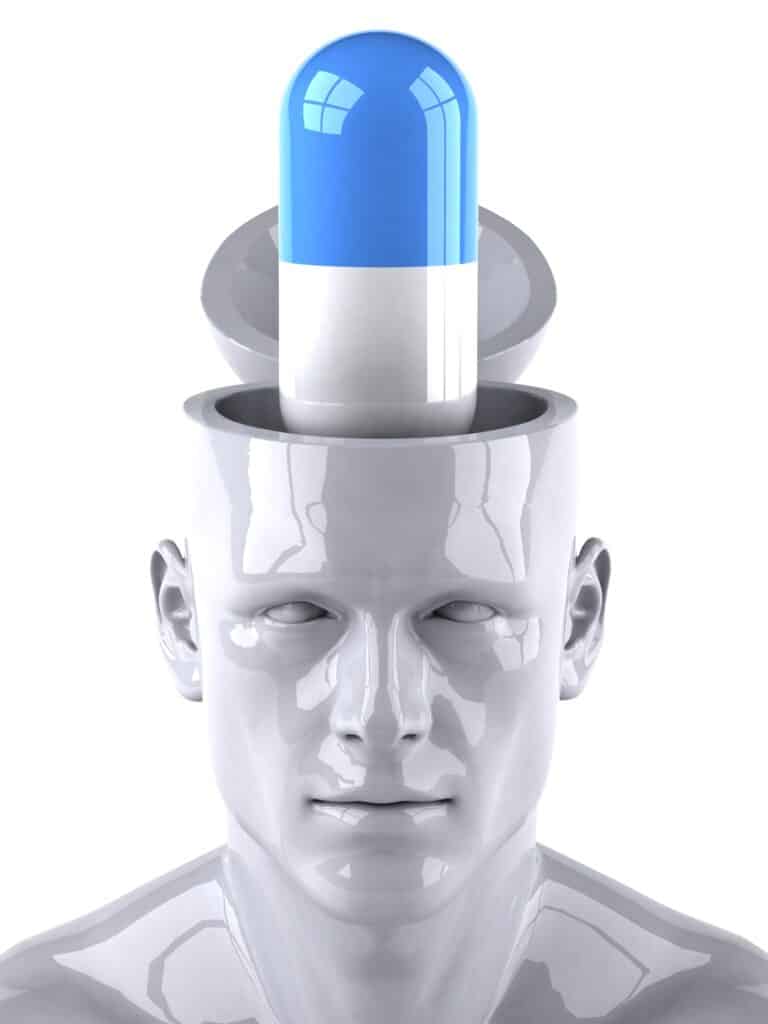
7 Shocking Facts About the Google Memory Game You Never Knew
We all have our favorite memory games, but did you know that Google has entered the ring with an impressive array of neurologic challenges for

The prevalence of study drugs, also referred to as “smart drugs,” is growing among students, who are increasingly turning to illicit substances in an effort to gain a competitive edge. These study drugs give users the energy and focus they need to study for long hours, but can have devastating consequences if used over extended periods of time.
The most commonly abused study drugs include Adderall and Ritalin, both of which are stimulants prescribed by doctors for Attention Deficit Hyperactivity Disorder (ADHD). These study drugs act on the brain’s reward system, releasing dopamine and other neurotransmitters that produce intense feelings of pleasure and alertness. Unfortunately, these study drugs can lead to addiction if taken in excess. Additionally, study drugs can cause insomnia, headaches, nausea, loss of appetite and increased blood pressure.
Adderall is the brand name for amphetamine salts, a mixture of the stimulant drugs dextroamphetamine and amphetamine. It can be prescribed to help people with ADHD concentrate better on their work and study, but it is often misused by those without attention disorders. Overuse of Adderall can lead to dependency, insomnia, dry mouth, irritability, heart palpitations, restlessness and even paranoia. Furthermore, long-term use of Adderall has been linked to increased risk for stroke or heart attack.
Ritalin is another study drug that is commonly abused. It is a psychostimulant medication used to treat attention deficit disorder (ADHD). While effective in treating this condition, it can also be misused to study for long periods of time. Ritalin is also addictive, and overuse can lead to insomnia, anxiety, depression and digestive problems.
Ritalin works by increasing the amount of dopamine in the brain. Dopamine is a neurotransmitter that helps to control the brain’s attention and movement. Ritalin can cause side effects such as headache, dizziness, nausea, vomiting, diarrhea, and constipation. It can also cause changes in mood, such as irritability and anxiety.
Another study drug gaining popularity among students is Modafinil, a psychostimulant that increases alertness and has been prescribed for the treatment of Narcolepsy. However, since its effects are not as powerful as other study drugs, it is often abused as an alternative to Adderall or Ritalin. Just like other study drugs, Modafinil can lead to addiction if taken over long periods of time and may also cause irritability and anxiety when used improperly.
Modafinil is a wakefulness-promoting agent that is used to treat excessive daytime sleepiness caused by narcolepsy, shift work sleep disorder, and obstructive sleep apnea/hypopnea syndrome. It works by stimulating the central nervous system, which increases the amount of dopamine in the brain. This increases wakefulness and alertness. Modafinil can cause side effects such as headache, nausea, diarrhea, and anxiety. It can also cause Stevens-Johnson syndrome, a rare but serious skin rash.
Fortunately, there are safer alternatives available to those looking for additional energy and focus while studying without putting their health at risk. Nootropic supplements, such as ISO Brain, are designed to improve cognitive functioning without the unwanted side effects of study drugs.

Misuse of study drugs is illegal in the United States. Possession, sale and purchase of these drugs without a prescription is considered a felony and can bring serious consequences, such as fines or jail time.
In the U.S., under the Controlled Substances Act, Adderall and Ritalin are classified as Schedule II drugs. This means that they have a high potential for abuse and can lead to physical or psychological dependence. Misuse of study drugs can also lead to academic disciplinary action in schools, as these are considered performance-enhancing substances and students found guilty of taking them could face expulsion from school.
Modafinil is a Schedule IV drug, so it has a lower potential for abuse and is not as heavily regulated. However, possession and usage of Modafinil without a prescription can still result in legal consequences, since it is generally illegal to possess any scheduled prescription drug without a prescription.
For college students, the legal consequences of taking study drugs may be even more severe, because drug convictions can disqualify you from receiving federal student aid. The duration of the disqualification starts at one year and increases by one year for each subsequent offense. If you’re receiving federal student aid, taking study drugs could seriously delay your degree!
In recent years, there have been several high-profile cases involving study drugs. In 2015, an 18-year-old student in California died from an overdose of study drugs he had obtained off the internet. His parents warned that study drug abuse is a real problem and can have serious consequences.
The same year, another student was charged with selling study drugs on campus after being caught with thousands of pills in his dorm room. He faced up to 25 years in prison for the crime.
Finally, in 2017, a high school senior died after taking study drugs he bought online to stay awake and study for exams. This case sparked new debates about the dangers of study drugs and how they should be regulated more strictly.
Before study drugs became popular in the United States, they were used by Nazi soldiers during World War II. Based on their racist ideology and pseudoscience, the Nazis sought to create a superhuman race of warriors. Since they weren’t actually biologically superior, however, they turned instead to performance enhancing drugs.
The most popular study drug among Nazi soldiers was methamphetamine, which was known as Pervitin at the time. Historians believe that Pervitin gave soldiers increased alertness and energy, allowing them to stay awake for days on end. However, it also caused physical exhaustion and psychological disturbances in some of its users, leading the German military to eventually ban Pervitin from use in 1941. Unfortunately, quitting Pervitin didn’t make the Nazis any less brutal or evil.
The short story Flowers for Algernon by Daniel Keyes is about a study drug called “Algernon-Gain” which temporarily increases the intelligence of its user, but also causes physical and psychological deterioration after prolonged usage. The story is generally viewed as an interrogation of the nature of intelligence and commentary on society’s treatment of the cognitively disabled, but it is also readable as a warning about the dangers of using study drugs. This story inspired the Season 12 episode of The Simpsons titled HOMR, in which Homer Simpson takes an experimental drug that temporarily increases his brain power.
The movie Limitless also contains elements of study drug use. The protagonist in this film takes a pill called NZT-48, which gives him enhanced cognitive abilities and allows him to achieve success beyond his wildest dreams. However, like Algernon-Gain, prolonged usage of NZT-48 leads to terrifying side effects. One could argue that the current popularity of study drugs is an example of life imitating art.
Study drugs can go by many different names on the street, depending on what kind of study drug it is. Stimulants are known as “uppers” or “smart drugs,” while study drugs which reduce fatigue are called “nerve pills.” In addition, study drugs may be referred to as nootropics, although this term usually refers to legal supplements designed to improve cognitive performance without the negative side effects of study drugs.
If you or someone you know has become addicted to study drugs, it is important to seek help from a qualified medical professional as soon as possible. Treatment options may include individual or group counseling, medications to reduce withdrawal symptoms, and outpatient programs. Acing the exam is never worth losing your life!
Nootropics are natural botanical extracts and other substances that can enhance mental performance in areas such as focus, memory, motivation and creativity. They work by a variety of different biological mechanisms, such as by increasing blood flow to the brain, providing it with more oxygen and essential nutrients needed for proper brain function. Unlike scheduled drugs, over-the-counter nootropics have very low potential for addiction or overdose. They are available without a prescription and cost far less than black market study drugs.
For college students looking for an edge in their studies, nootropic supplements are an excellent alternative to study drugs. They can provide you with the energy and focus you need to study effectively without putting your health or academic career at risk. With a wide variety of different nootropic supplements available, there’s sure to be one that fits your study needs and lifestyle. So, instead of risking your health and academic success with study drugs, why not give ISO Brain a try? You can also get a free shaker bottle.
Another advantage is that nootropic supplements can be taken in a variety of forms – pills, powders and capsules – which makes

We all have our favorite memory games, but did you know that Google has entered the ring with an impressive array of neurologic challenges for

Einstein’s Universal Appeal: Exploring the Global Impact of an Iconic Genius in 2023 Why Does the World Remember Einstein as a World Citizen? What is

I genuinely dislike computer science, but that won’t stop me from earning my degree by 2023. It’s no secret that computer science classes can be

In the early days of Instagram, getting verified was considered a sign of honor. That little blue checkmark next to your name indicated you were
† These statements have not been evaluated by the FDA. This product is not intended to diagnose, treat, cure, or prevent any disease.